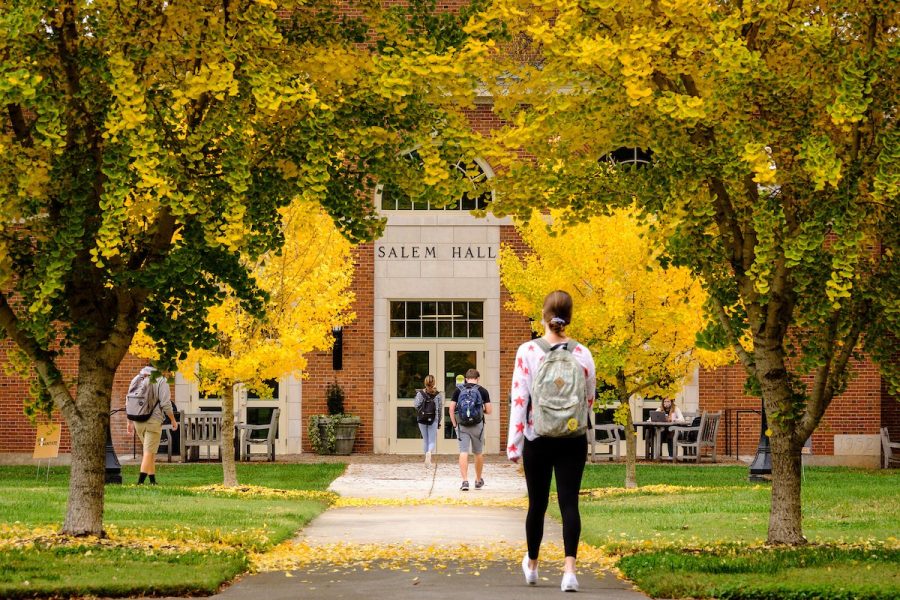Autumn encapsulates the emotions of life
A time of sweaters and celebrations, autumn also represents reflection
Autumn leaves on campus can be quite beautiful.
September 23, 2021
As I slipped on my jacket to prepare for the slight dip in temperature, I realized that the dawn of autumn was upon us. Along with it will come the nuanced feelings of warmth and comfort — both symbols that I associate with the changing season. The leaves wither away, and as I tune into the natural world around me, I feel the recherche feeling of introspection that comes and goes. A feeling that often signifies a period of growth.
That’s what autumn is, right? As the leaves curl into themselves, preparing to be reborn in the coming seasons and the days grow shorter, the world takes a breath, a minute to simply rest. It is a time to reflect on the preceding months and retreat into the comforting cocoon of winter. A time to slow down and unwind.
This is the time to ponder all the ubiquitous yet sibylline wonders and questions of life and love. We think about the beauty of the world around us and try to truly understand the fragility of our daily occurrences. How far have we come? How far will we go?
As all of the beautiful impulses of nature shift and change to signal the feelings of autumn, we are asked to step outside of our own moral discernment, to also be reborn in the winter season. The person I am now is not the same one who reminisced about summer and prepared for the arrival of autumn the year prior.
College, as many people have told us, is the time to discover ourselves and to shape our identities. But have we ever slowed down from the slew of classes, social engagements, assignments and other innocuous things that fill up our mind to take the time to figure out just who we are? Autumn is the quintessential time to dig into these philosophical questions about life and identity. A time to rewind and absorb the lessons that nature provides us.
A class I am currently taking examines the works of British Romantic Poets (the likes of William Blake and William Wordsworth), and there are many lessons that can be taken from these grizzled poets of the past. What has resonated with me the most are the works of Wordsworth — a poet who became more and more didactic as he aged. Specifically, his reflections on nature feel especially pertinent to the lives of college students.
Wordsworth’s moral dilemma involves his ability to see the beauty of the natural world around him, to appreciate the essence of nature. Because of this, he often had a melancholic and somber mindset, for he also recognized where humanity had failed in its ability to be like nature. If we are to take the lessons that the natural world provides us, we will be able to achieve the same peace and serenity that is afforded in nature.
As students, we are constantly dragged in a million different directions, and the world never seems to slow down. As a result, we often miss the lessons around us and fail to recognize the beauty of the world in which we exist.
One of Wordsworth’s most notable works is his poem, “Lines Written in Early Spring”; the second stanza is as follows:
“To her fair works did Nature link
The human soul that through me ran;
And much it grieved my heart to think
What man has made of man.”
What has man made of man? We are all consumed with the thoughts of mankind and the pursuit of some sort of end-all-be-all goal of happiness that we lose some of the very meaning of life — to love and to experience.
As campus shifts into Autumn and the weather gets colder, consider the lessons of Wordsworth and slow down to appreciate the beauty of life, and nature. Allow yourself to experience the beatific and serene natural world around you.























